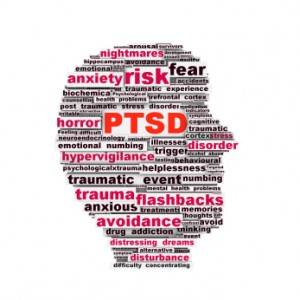Type of Trauma Affects Gene Transcription Effects in PTSD
 In a 2017 article in the journal Neuropsychopharmacology, researcher Michael S. Breen and colleagues analyzed five separate studies of post-traumatic stress disorder (PTSD) and found that sex and type of trauma affected the immunological pathways that changed with PTSD. People with PTSD showed disruptions in gene expression in specific immunological pathways depending on what type of trauma they had experienced.
In a 2017 article in the journal Neuropsychopharmacology, researcher Michael S. Breen and colleagues analyzed five separate studies of post-traumatic stress disorder (PTSD) and found that sex and type of trauma affected the immunological pathways that changed with PTSD. People with PTSD showed disruptions in gene expression in specific immunological pathways depending on what type of trauma they had experienced.
Men exposed to combat traumas showed downregulation in a pathway related to wound healing, while men who were exposed to interpersonal traumas had upregulation in a signaling pathway mediated by the inflammatory marker IL-12. Women exposed to interpersonal traumas showed upregulation of two pathways—one related to lipid metabolism and the other related to MAPK (or mitogen-activated protein kinase) activity.
The participants with PTSD also showed a lot of the same disruptions across all types of trauma, including disruptions that affected cytokine, innate immune, and type 1 interferon pathways.
These data show that immune dysregulation and inflammatory pathways play a role in the pathophysiology of PTSD.

